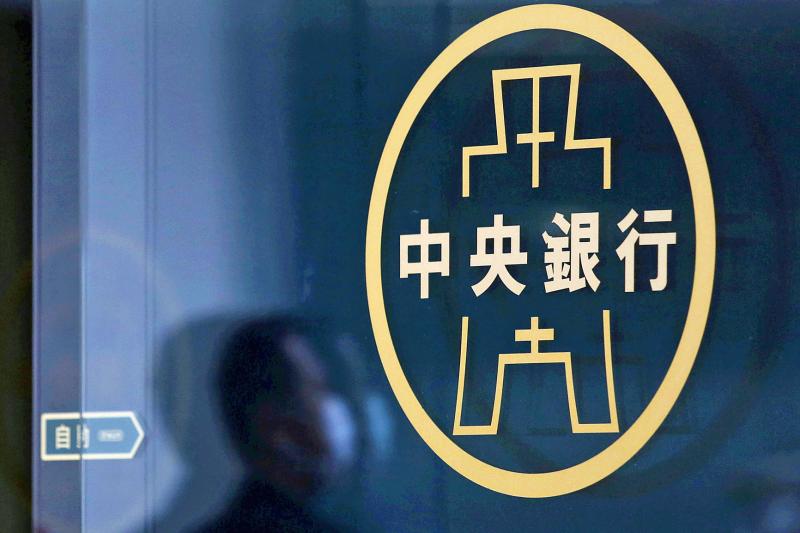The central bank intends to maintain selective credit controls on the local property market, which has seen an uptick in transactions and prices, it said in a report released yesterday, ahead of Governor Yang Chin-long (楊金龍) attending a meeting of the legislature’s Finance Committee today.
“The central bank will closely watch the property market and mortgage operations to prevent an excessive flow of credit to the property market,” Yang said in the report.
The bank is to maintain the 60 percent limit on luxury housing loans to achieve that aim, the report said.

Photo: Tyrone Siu, Reuters
Yang underscored the policy stance after acknowledging an uptrend in local property prices, whereas properties elsewhere in the world are taking a hit from diminished economic activity amid the COVID-19 pandemic.
The governor attributed the price hikes to Taiwanese companies returning from China to diversify investment risks, international technology giants stepping up investment in Taiwan and land purchases by local developers and life insurance companies.
The government has received more than NT$1 trillion (US$34.54 billion) in investment pledges from local firms that aim to shift part of their manufacturing back to Taiwan in the wake of the US-China trade dispute.
These investments would generate job opportunities and drive up income levels, which in turn would boost housing affordability and lower mortgage burdens, Yang said in the report.
The onshoring trend and the government’s encouragement of urban renewal projects have fueled optimism in the property market, he added.
The upbeat sentiment is most evident in Taichung, where presale residential project prices have posted the steepest gains, Yang said.
Overall, the pace of recovery is stronger in southern Taiwan than in the north, he said, adding that selling pressure remains in areas with heavy supply.
The central bank reportedly telephoned several lenders to convey its concern over loose mortgage standards amid reports that some bank branches are offering loans of up to 90 percent of home values to attract customers.
The practice is rare, driven mainly by excessive idle liquidity, the bank said, adding that the average loan-to-value ratio was 71.3 percent in the first half of this year.
Rather, most lenders opt to shore up their business by extending the grace period or providing favorable borrowing costs, the central bank said.
Defaults on mortgage and construction loans dropped to 0.14 percent and 0.12 percent respectively in August, lower than the overall bad loan ratio of 0.24 percent, it said.
Tax policies are more effective tools in curbing property speculation and land hoarding, the bank said.

South Korea’s equity benchmark yesterday crossed a new milestone just a month after surpassing the once-unthinkable 5,000 mark as surging global memory demand powers the country’s biggest chipmakers. The KOSPI advanced as much as 2.6 percent to a record 6,123, with Samsung Electronics Co and SK Hynix Inc each gaining more than 2 percent. With the benchmark now up 45 percent this year, South Korea’s stock market capitalization has also moved past France’s, following last month’s overtaking of Germany’s. Long overlooked by foreign funds, despite being undervalued, South Korean stocks have now emerged as clear winners in the global market. The so-called “artificial intelligence

NEW IDENTITY: Known for its software, India has expanded into hardware, with its semiconductor industry growing from US$38bn in 2023 to US$45bn to US$50bn India on Saturday inaugurated its first semiconductor assembly and test facility, a milestone in the government’s push to reduce dependence on foreign chipmakers and stake a claim in a sector dominated by China. Indian Prime Minister Narendra Modi opened US firm Micron Technology Inc’s semiconductor assembly, test and packaging unit in his home state of Gujarat, hailing the “dawn of a new era” for India’s technology ambitions. “When young Indians look back in the future, they will see this decade as the turning point in our tech future,” Modi told the event, which was broadcast on his YouTube channel. The plant would convert

‘SEISMIC SHIFT’: The researcher forecast there would be about 1.1 billion mobile shipments this year, down from 1.26 billion the prior year and erasing years of gains The global smartphone market is expected to contract 12.9 percent this year due to the unprecedented memorychip shortage, marking “a crisis like no other,” researcher International Data Corp (IDC) said. The new forecast, a dramatic revision down from earlier estimates, gives the latest accounting of the ongoing memory crunch that is affecting every corner of the electronics industry. The demand for advanced memory to power artificial intelligence (AI) tasks has drained global supply until well into next year and jeopardizes the business model of many smartphone makers. IDC forecast about 1.1 billion mobile shipments this year, down from 1.26 billion the prior

People stand in a Pokemon store in Tokyo on Thursday. One of the world highest-grossing franchises is celebrated its 30th anniversary yesterday.